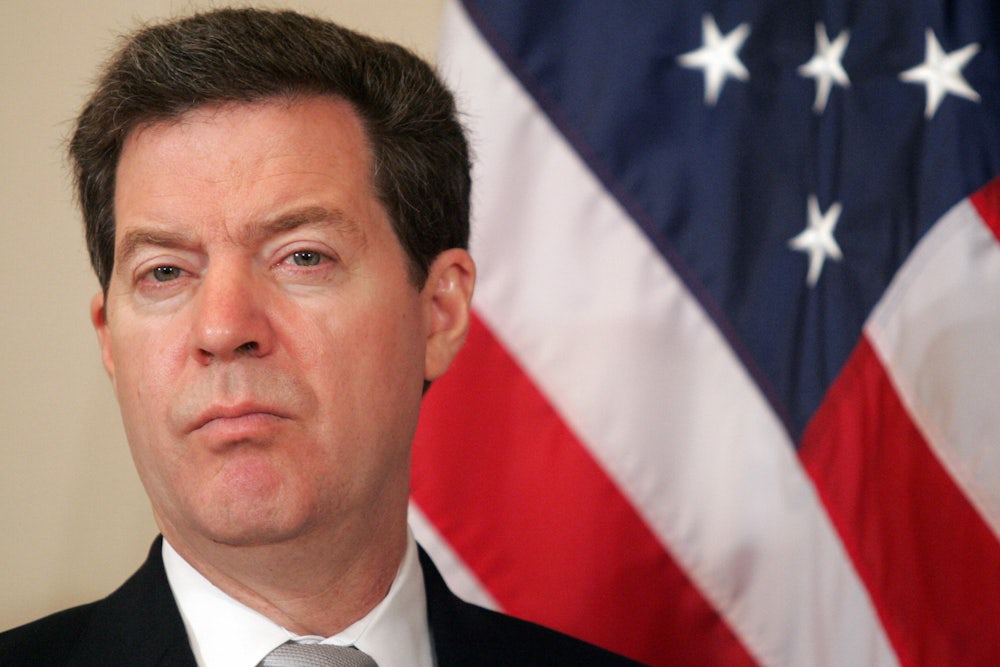A diverse coalition of Republicans and Democrats in the Kansas state legislature voted on Tuesday to roll back Governor Sam Brownback’s sweeping 2012 tax cuts, overriding his veto. After five disastrous years, Brownback’s historically ambitious plan to make real every Norquistian’s sweetest fantasy has been beaten back to the regressive hell from whence it came.
In 2011, Brownback assumed office with the goal of turning the state into a petri dish for some of the most extreme tax policies in the nation. The conservative-dominated state legislature lined up behind him and, with the passage of the largest tax cut in state history, immediately began to wean the government off income taxes. The expectation was that newly unburdened corporations and the rich would usher the state into a new era of unprecedented economic growth. He called his plan the “march to zero,” a reference to his ultimate aspiration to eliminate the income tax altogether. It turned out to be more like a sprint to bankruptcy.
The economy sank like a rock. Kansas plunged into a full-fledged crisis, and by 2016 was staring at a budget shortfall of $350 million, with projected shortfalls approaching $1 billion by 2019. But instead of raising taxes high enough to actually pay for things, Brownback doubled down and slashed education funding so severely that the state Supreme Court ruled (twice!) that funding levels were unconstitutionally low.
Brownback’s failed experiment offers a chilling glimpse at how conservatives might govern at the federal level if left unchallenged. And the prospect is certifiably apocalyptic. If it wasn’t already clear, massive tax cuts for the wealthy are not, as Brownback said, “like a shot of adrenaline into the heart of the ... economy.” Any time a Republican proposes a similarly regressive tax plan, the rest of us can simply respond with, “Remember Kansas.”
